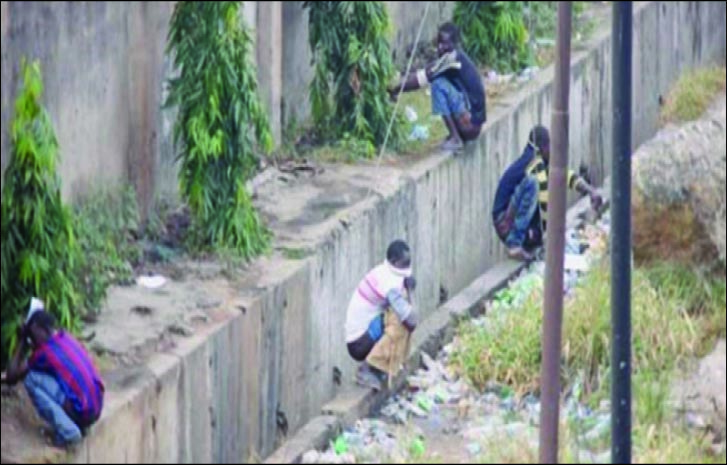The federal government has said about 47 million Nigerians are still practising open defecation, using the bush and water bodies as their regular means for excreta disposal.
Minister of Environment, Dr Mohammad Mahmood Abubakar stated this in Abuja yesterday while addressing newsmen on the 2020 World Toilet Day (WDT) with the theme, “Sustainable Sanitation and Climate Change”.
He noted that one of the major consequences of poor excreta disposal is the high rate of diarrhoea, which is the second cause of high rate of morbidity and mortality among children under the age of five.
The minister stated that the federal government is committed to addressing the sanitation challenges including ending open defecation and proper management of excreta, as demonstrated by Mr President’s declaration of State of Emergency on Water, Sanitation and Hygiene (WASH) as well as signing the Executive Order no 009 2019 on Open Defecation Free (ODF) Nigeria by 2025.
Also speaking, the acting registrar of Environmental Health Officers Registration Council of Nigeria (EHORECON), Dr Yakubu Baba hinted that the major focus of the ministry is to provide the necessary infrastructure that would support sanitation.
He enjoined stakeholders to key into the ministry’s vision so that Nigeria would achieve the ODF target by 2025.
The minister of State Environment, Barr Sharon Ikeazor encouraged Nigerians to practice sustainable sanitation and procure handwashing facilities that would help in stopping the spread of deadly diseases like COVID-19, cholera and typhoid.
She was optimistic that efforts of the federal government, development partners and civil society organisation’s in raising awareness on the dangers of open defecation and using a safe toilet would produce a community with minimal disease transmission and infection.
The national consultant to World Health Organisation (WHO), Dr Edwin Isotu encouraged the federal government to start investing in climate resilient actions and mainstream climate change into development plans, saying that investing in sustainable sanitation would create more jobs for Nigerians and address the challenges of open defecation.

